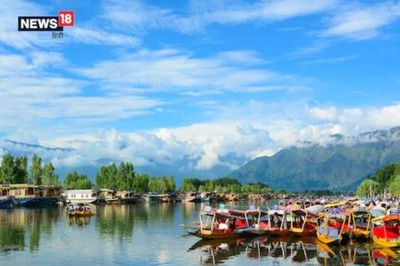
views
Islamabad: Pakistan's military was ridiculed and accused of complicity in the media on Tuesday after a small group of militants laid siege to a naval air base, holding out for 16 hours against hundreds of commandos and rangers.
As few as six militants infiltrated the PNS Mehran naval base in Karachi, the headquarters of Pakistan's naval air wing, on Sunday night, killing 10 security forces and wounding 20.
"Our mujahideen who conducted this operation were equipped with faith as well as with sophisticated weapons and that's why they fought with hundreds of security forces and inflicted heavy losses on them," Pakistan Taliban spokesman Ehsanullah Ehsan told Reuters from an undisclosed location.
Interior Minister Rehman Malik said on Monday three militants were killed in the gunbattle while the body of a fourth was believed to be buried under the rubble of a collapsed wall. Two suspects were believed to have fled the scene, he added.
Pakistan's military has been on the back foot since US special forces killed al Qaeda leader Osama bin Laden on May 2, unable to explain either why they had been unable to catch the world's most wanted man themselves or why the Americans could launch a raid deep into their territory undetected.
Two P-3C Orion aircraft from the United States - crucial assets for Pakistan's anti-submarine and maritime surveillance capability - were destroyed in Monday's raid, and the Pakistan military's reputation as a defender of the country and of Islam was left in tatters.
Reaction to the raid from the generally pro-military Pakistani media was harsh.
"Political rhetoric and a Cabinet Defence Committee meeting are not going to solve this one," read an editorial in the English-language daily, The News. "This is an epic failure exposing an existential threat that will need epic leadership to countervail."
An editorial in the Urdu-language Jang, one of nuclear-armed Pakistan's biggest and most pro-military newspapers, said the attacks illustrated "a weakness of security measures".
"In very polite words, it can be called worrisome negligence."
Others went beyond incompetence and suggested that the attackers had help from within the military.
"Did the Taliban raiders have information inside the naval base?" wrote Dawn, another English-language daily. "Such a possibility cannot be ruled out, because the involvement of serving personnel in several previous attacks has been well-established."
In October 2009, a similarly small raiding party attacked the Army's General Headquarters in Rawalpindi, taking 42 people hostage, including several officers. By the end of the day-long ordeal, nine gunmen, 11 soldiers and three hostages were dead.
Later investigations found several low-ranking soldiers and officers were involved in helping the attackers.
Ehsan declined to confirm whether the militants had help in the military.
"Our 'local friends' from Karachi helped us in yesterday's operation but I would not say whether we had friends on the base or not," Ehsan said.
Amir Rana, director of the Pakistan Institute of Peace Studies and author of a book on jihadi groups in Pakistan, doubts the Taliban was directly involved, but more likely worked through other, Punjab-based groups affiliated with al Qaeda.
"There are militant groups which have training and capabilities for these kind of attacks and they also are in direct contact with al Qaeda," he said.
He thought groups attached to Ilyas Kashmiri, who reportedly commands the "313 Brigade", al Qaeda's operational arm, more likely staged the raid, given its sophistication.
He identified three groups active in Karachi - Jundullah, Arshad Wahid group and Harkat-ul-Mujahideen-Al-Alami, which he said could also have been be involved.
The military launched operations against the Pakistan Taliban in South Waziristan in 2009, scattering the leadership and racking up some victories.
It was relatively quietin 2010, but the Pakistan Taliban appears to have built up its connections, giving militants a new strike capacity in Pakistan's economic hub.
The death of bin Laden was the spark, and the Pakistan Taliban have been on a roll ever since, promising to sow chaos and attack Pakistan's military and government.
"Now Pakistani rulers, President (Asif Ali) Zardari and the army will be our first targets. America will be our second target," Ehsan told Reuters by telephone from an undisclosed location on May 2, hours after bin Laden was killed.
The Mehran navy base raid shows the militants making good on that promise.




















Comments
0 comment